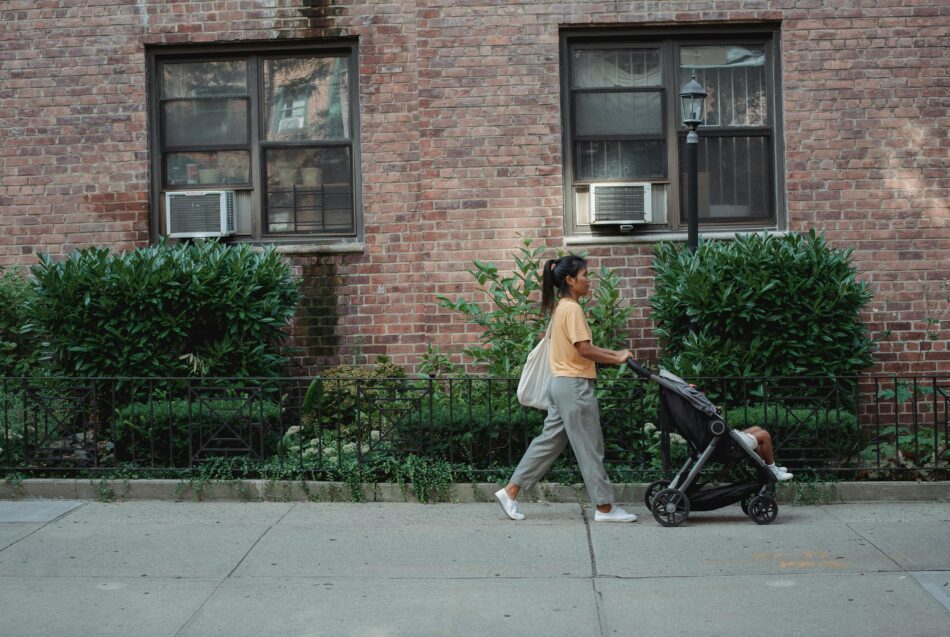In the neighborhoods of New York City, where nannies navigate crowded parks with strollers and juggle long hours caring for children, Vice President Kamala Harris’ campaign planned to launch the Affordable Child Care Act that aimed to raise wages and improve working conditions for childcare workers, though it left undocumented nannies out of its benefits. Meanwhile, President-elect Donald J. Trump has yet to unveil a detailed plan addressing affordable childcare or providing support for the nation’s childcare workers.
Monica is a Peruvian immigrant who once worked as a nanny in New York. Her thoughts drifted between the two worlds she had known as a nanny on opposite sides of the country. Her memories of New York were vivid, filled with the hustle of crowded streets and service workers that reminded her of her home in Peru, but also tinged with the weight of an unspoken inequality in her profession. She had learned, through years of experience, that nannies were not treated the same everywhere.
Monica did not provide her last name or a reason why.
What bothered Monica most, however, was the financial disparity that haunted the profession. She spoke of fellow nannies who, despite working long hours and caring for children in some of the wealthiest neighborhoods, barely made enough to get by. Earning as little as $400 a week, they faced an impossible task — trying to survive in the unforgiving, high-cost environment of New York. It was, as Monica knew, an unsustainable reality that so many quietly endured, and an issue that weighed heavily on her mind.
As Monica spoke candidly about the dehumanizing treatment of nannies, she highlighted the issue of low wages in New York City. She revealed that she never discussed her salary with fellow nannies to avoid stirring jealousy. In her experience, many nannies — particularly those who bring their children from overseas — are paid very low wages, compounding the challenges they face in an already difficult profession.
“I never discussed that with other people, because I will be exposed to them wanting to know how much money I earn,” said Monica.
“The people who work in the field I work, they try to say, ‘I earn $50 an hour,’ just to make the other people jealous. You know what I’m saying? They will say, ‘Oh, no, I earn this,’ So they’re always competing about how much they’re getting.”

(Photo by cottonbro studio / Pexels.)
Nanny culture in New York is a well-established phenomenon, shaped by the city’s fast-paced lifestyle, high demand for childcare and economic disparity between wealthy families and the nannies who serve them.
Nationally, it is estimated that between 40% and 50% of domestic workers are undocumented. In New York, 48% of immigrants are from Latin America and the Caribbean, 29.8% of immigrants are from Southeast Asia, according to Migration Policy.
Harris proposed a policy designed to make childcare more affordable and accessible for working families across the U.S. While Trump has not outright opposed the initiative, he has yet to offer an alternative plan or proposal.
Undocumented nannies are unlikely to benefit directly from public childcare programs or improved labor protections under the act, as their immigration status may prevent them from accessing legal employment or services.
Though this is a fact, the funding and support for affordable childcare could lead to higher demand for childcare workers, including nannies. This could create more employment opportunities for undocumented workers, as families seek affordable care options, according to American Progress. Yet, the lack of legal status could still limit access to formal childcare roles keeping nannies in often underpaid positions. Issues like workers’ rights and wages will influence nannies in their voting decisions in the upcoming election.
The Biden-Harris Administration Support for Child Care American Rescue Plan (ARP) prevented the closure of over 225,000 child care providers, resulting in a 10% increase in wages for child care workers, according to the White House website.
Trump has pledged a strict immigration policy that would heavily impact undocumented workers, including those in childcare. Now that he has been re-elected, he aims to expand policies focused on reducing undocumented immigration, like revoking work permits and ending programs that provide temporary protection, according to Politifact. This change can directly affect nannies who are undocumented specifically in New York. While his “America First” economic strategies aim to boost growth, they do not directly address the childcare sector’s needs.
When asked directly if he would “commit to prioritizing legislation to make child care affordable” and “what specific piece of legislation” he would support during a Q&A session at the Economic Club of New York, Trump’s responses lacked clearness or policy specifics — a stark contrast to Harris, who outlined detailed proposals to address this matter.
Monica has voiced her strong disapproval of Donald Trump, referring to him as “cuckoo” and sharply criticizing his treatment of women and people of color. She emphasized that, regardless of any policies he might propose, even if they were to benefit nannies — a profession close to her heart — she would never cast her vote for him.
“No, I would never vote for Trump, even if he released something to help nanny,” said Monica.
“He’s cuckoo. He’s dehumanizing everybody, woman, people of color. I don’t know how people allow him to be a President or be whatever. I hate him.”
In contrast, Monica has expressed her support for Harris. While acknowledging that no politician is without flaws, Monica underscored the importance of selecting the lesser of two evils in today’s political landscape, pointing to the moral choices voters must face.
“I will vote for Kamala, even if she’s not the perfect person, but no politician is perfect,” she said.
“I know we have to choose entry two bad things all the time everywhere. You know, we try to change this, but it’s not going to change, because it’s all about money and power.”



